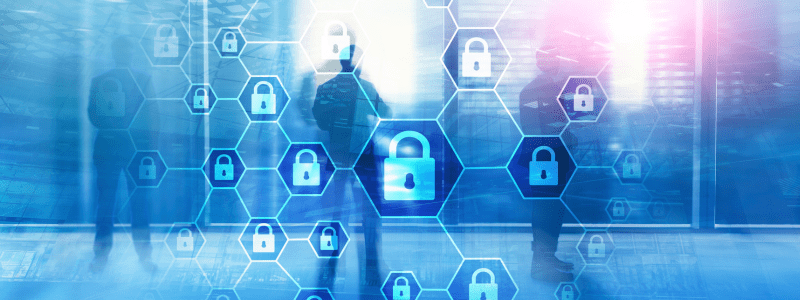In today’s digital age, cybersecurity is more important than ever. With our increasing reliance on technology for everything from banking to communication, protecting our digital lives from cyber threats has become essential. But what exactly is cybersecurity, and why should you care? Let’s dive in and explore the world of digital defense.
Understanding Cybersecurity
Definition of Cybersecurity
Cybersecurity refers to the practices, technologies, and processes designed to protect networks, devices, programs, and data from attack, damage, or unauthorized access. It’s a broad field that encompasses everything from securing personal computers to safeguarding large-scale corporate networks.
Key Components of Cybersecurity
- Network Security: Protecting the integrity and usability of network infrastructure.
- Application Security: Ensuring that software and apps are free from threats.
- Information Security: Protecting the integrity and privacy of data.
- Operational Security: Processes and decisions for handling and protecting data assets.
- Disaster Recovery: Procedures for responding to and recovering from cyber incidents.
Common Cyber Threats
Malware
Malware, short for malicious software, includes viruses, worms, spyware, and ransomware designed to cause damage or unauthorized access to systems.
Phishing
Phishing attacks use deceptive emails or websites to trick individuals into providing sensitive information like passwords or credit card numbers.
Ransomware
Ransomware locks users out of their systems or data, demanding payment to regain access. It’s a growing threat with significant financial implications.
Social Engineering
Social engineering exploits human psychology to trick individuals into revealing confidential information. This can include phishing and other manipulative tactics.
DDoS Attacks
Distributed Denial of Service (DDoS) attacks overwhelm systems with traffic, causing them to become unavailable to users. These attacks can cripple websites and services.
Importance of Cybersecurity
Protecting Personal Information
In the digital world, personal information is gold. Cybersecurity measures help keep your identity and personal details safe from hackers.
Safeguarding Financial Data
Online banking and financial transactions are prime targets for cybercriminals. Strong cybersecurity practices protect your financial assets.
Ensuring Business Continuity
For businesses, a cyber attack can mean significant downtime and loss of revenue. Effective cybersecurity ensures that businesses can operate smoothly without interruptions.
Cybersecurity Best Practices

Use Strong Passwords
A strong password is your first line of defense. Use complex passwords that combine letters, numbers, and special characters, and avoid using the same password across multiple sites.
Enable Two-Factor Authentication
Two-factor authentication (2FA) adds an extra layer of security. Even if your password is compromised, 2FA makes it harder for attackers to gain access.
Regular Software Updates
Keep your software and operating systems up to date. Updates often include patches for security vulnerabilities that hackers could exploit.
Secure Wi-Fi Networks
Make sure your home Wi-Fi network is secure by using a strong password and encryption. Avoid using public Wi-Fi for sensitive transactions.
Backup Your Data
Regularly back up your data to an external hard drive or cloud storage. This ensures you can recover your information in case of a cyber-attack or system failure.
Protecting Personal Devices
Securing Smartphones
Smartphones are a treasure trove of personal information. Use a strong password or biometric lock, enable remote wipe capabilities, and avoid downloading apps from untrusted sources.
Laptop and Desktop Security
Install reliable antivirus software, keep your operating system updated, and use a firewall. Be cautious of suspicious emails and links.
Safe Browsing Habits
Be mindful of the websites you visit. Look for HTTPS in the URL for secure connections, and avoid clicking on ads or pop-ups from unknown sites.
Cybersecurity for Businesses
Employee Training and Awareness
Employees are often the weakest link in cybersecurity. Regular training and awareness programs can help them recognize and avoid potential threats.
Implementing Security Policies
Establish clear security policies and procedures. This includes guidelines for password management, data handling, and incident reporting.
Network Security Measures
Use firewalls, intrusion detection systems, and encrypted connections to protect your network. Regularly monitor for unusual activity.
Incident Response Plans
Have a plan in place for responding to cyber incidents. This should include steps for containing the threat, communicating with stakeholders, and recovering data.
Emerging Cybersecurity Trends
AI and Machine Learning in Cybersecurity
Artificial intelligence and machine learning are revolutionizing cybersecurity. These technologies can detect and respond to threats faster and more accurately than traditional methods.
Cloud Security
As more data moves to the cloud, ensuring the security of cloud services becomes crucial. This includes using secure cloud storage solutions and understanding shared responsibility models.
Internet of Things (IoT) Security
With the proliferation of IoT devices, securing these gadgets is a growing concern. Each connected device can be a potential entry point for cyber attacks.
The Future of Cybersecurity

Predictions and Challenges
The cybersecurity landscape is constantly evolving. New threats emerge as technology advances, making continuous learning and adaptation essential.
Importance of Continuous Learning
Staying updated on the latest cybersecurity trends and best practices is vital. Cybersecurity is not a one-time effort but an ongoing process.
Conclusion
In a world where our lives are increasingly digital, cybersecurity is a critical concern. By understanding the threats and implementing best practices, you can protect your personal and financial information, ensuring your digital life remains secure. Stay vigilant, stay informed, and make cybersecurity a priority.
For more information about the Internet of Things (IoT) and its impact on digital security, read our article What is the Internet of Things (IoT)?

